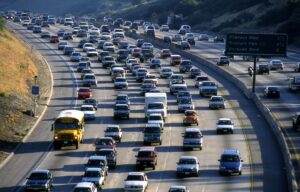No, this is not some kind of geometric progression you had to recognize as part of your college entrance exams. These are all key numbers in the energy industry.
Do you know why these numbers are important? You probably only recognize the last two as the DOE recommended thermostat temperature settings for heating and cooling setpoints. Do you remember when those recommendations were made and why they were deemed important? Do you know how much one degree Fahrenheit change in your setting makes in your heating and cooling energy use and costs?
Of course most people don’t. Believe it or not, that first degree change saves or costs about 7-9% of your monthly energy use. So, those of you holding 75 F for cooling in your home are using about 25% more energy for those 3 extra degrees of comfort … and costing energy and carbon along the way in almost every case. Yet, you don’t hear politicians asking you to do this.
You should be asking why … so let’s go on to the first number in the title of this blog.
Yes, that was the speed limit Jimmy Carter imposed on our superhighways to reduce our fuel consumption as part of his response to the second Arab oil embargo in 1978. The sweeping legislation emerged because of the crisis was deemed “the moral equivalent of war.” The Department of Energy was formed and a host of key energy legislation imposed to get us off foreign oil. Lowering the speed limit had other positive consequences including lowering the number and severity of our highway accidents.
I remember those lines at the gas stations and there was palpable fear in all our hearts. Everyone seemed on board to do their part individually because we knew, or at least believed, that the result was good for all.
So, if we are so concerned about the future of our planet, why have guidelines like this gone away? We now have many highways with speed limits of 70 upon which we seem to average 80. Our analysis of homes indicates the average air-conditioned home holds 74.
Do we care that we are gobbling energy with these behaviors? Or, have we shifted the responsibility to our providers in the hope that we no longer have to be inconvenienced or sacrifice anything in the bargain? Perhaps you remember when President Obama recommended we all check our car tire pressure because most tires were not properly inflated and the rolling resistance does decrease fuel efficiency as a result. There was almost instant rebellion at the suggestion we should all do our part in this logical way.
It strikes me as odd and inconsistent that we Americans say we want to limit climate change and yet are not interested in personal accountabilities. We want others to work the magic, in the same way we won’t reduce our calorie intake or stop eating the wrong foods. We are outsourcing our responsibilities rather than changing bad behaviors.
The consequence for driving on today’s highways is tragic. I am terrified of driving on the highways in Atlanta and have taught my daughters and son to always watch their rearview mirrors to scan for idiots who will slalom both right and left lanes going over 90 mph. One of our friends was killed by someone doing that.
Yes, it is nice to “make good time” on our long trips, but I have to say that driving my EV has taught me the relative efficiency of speed vs available battery miles. The screen monitors provide constant feedback so I can make the tradeoff of speed and arrival time and alerts me if I am not going to make the next charge station.
I remember gasoline cars that did the same thing, so we have the technology. Apparently, we are no longer interested in personal accountability for our driving characteristics. But perhaps that is also about to change as insurance companies tap into the onboard computers to evaluate our driving behaviors.
I can already hear the arguments against this as an invasion of privacy. Let’s see how the market players manage this new world of information availability. Do they emphasize you can get lower insurance rates by being recognized as a safe driver? Or, given we live in a democracy, does the plurality of bad drivers kill this idea because they know their prices are going to go up?
Wouldn’t it be ironic that free markets and risk transparency run against energy and societal stewardship? Haven’t we learned anything from the energy price spikes in the electricity markets years ago? … oh … if you didn’t know … the problem was that there was no incentive for homeowners and businesses to reduce their consumption during those hot summer afternoons.
The only thing we seem to learn from history is that we don’t learn anything from history.
